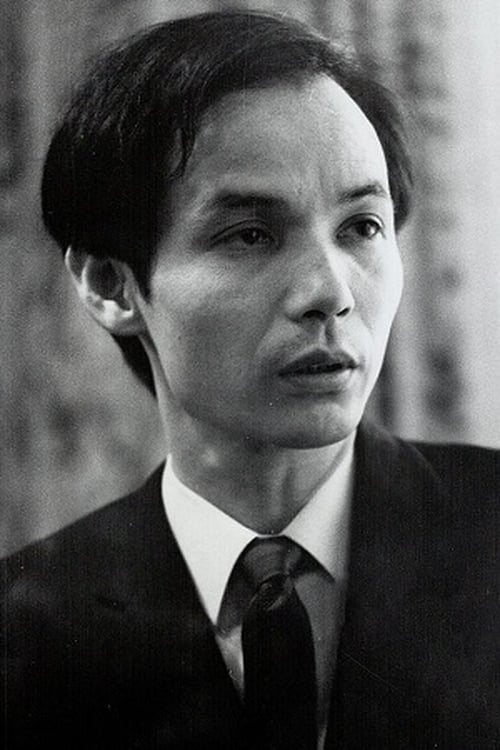Bad Boys (1961)
Genre : Drama
Runtime : 1H 29M
Director : Susumu Hani
Writer : Susumu Hani
Synopsis
A young delinquent takes part in a robbery and is sentenced to a juvenile detention center, where he clashes with other youths and reflects on his life experiences.

Towards the end of the Second World War, a downed U.S. pilot is captured and imprisoned by rural Japanese villagers, who await official instructions as to how to proceed with their “catch.”

In Osaka's slum, youths without futures engage in pilfering, assault and robbery, prostitution, and the buying and selling of identity cards and of blood. Alliances constantly shift. Tatsu and Takeshi, friends since boyhood, reluctantly join Shin's gang. Shin's an upstart and moves his gang often to avoid the local kingpin. Hanoko is a young woman with ambitions: first she's in the blood business with her father, then she joins forces with Shin. She soon breaks off that partnership, even though she's taken the sensitive Takeshi under her wing. Double crosses multiply. Those with the closest bonds become each others' murderers.
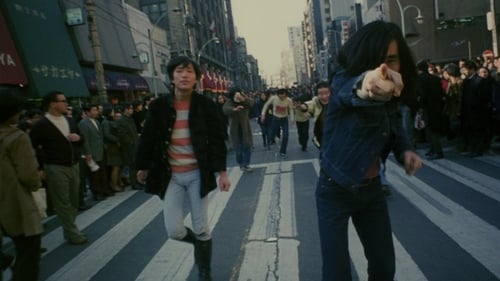
Conditions have been better for the nameless protagonist: his grandmother is a shoplifter and his war criminal father and sister have an unhealthy, intimate relationship with the family rabbit.
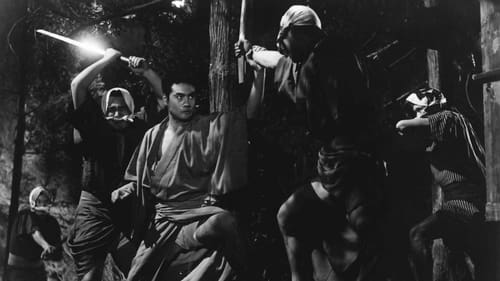
‘Tattooed Life' begins with a parasol wielding Yakuza assassin attacking a rickshaw. It almost looks like feudal Japan until somebody pulls a gun and we're reminded that it's the 20th century. Post-shooting, the assassin delivers his bounty to his brother (to pay for his art school education) before getting ambushed in one of the few rickshaw-jacking incidents in film history, and being rescued by his art-student brother. In the aftermath, one brother is marked for death by the Yakuza, and the other brother won't go to art school with blood on his hands, so they decide the perfect way to deal with such hardships is to become fugitive construction workers in northern Japan . And why not?

Two brothers compete for the amorous favors of a young woman during a seaside summer of gambling, boating, and drinking.

In the shady black markets and bombed-out hovels of post–World War II Tokyo, a tough band of prostitutes eke out a dog-eat-dog existence, maintaining tenuous friendships and a semblance of order in a world of chaos. But when a renegade ex-soldier stumbles into their midst, lusts and loyalties clash, with tragic results. With Gate of Flesh, visionary director Seijun Suzuki delivers a whirlwind of social critique and pulp drama, shot through with brilliant colors and raw emotions.

In the year 1637 in Shimabara of Tokugawa-era Japan, oppressed peasant Christians revolt against the shogunate with the aid of a charismatic Christian rebel leader Shiro Amakusa.
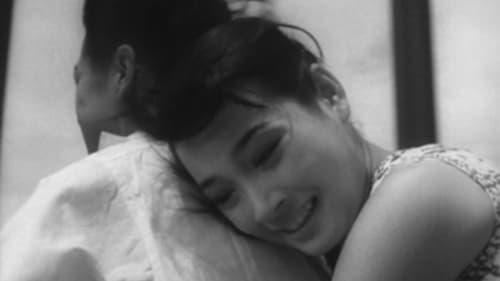
Kinichi and Akiko meet when they visit their fathers in prison. After successfully gambling on a bicycle race, they spend an enjoyable day together at the beach.
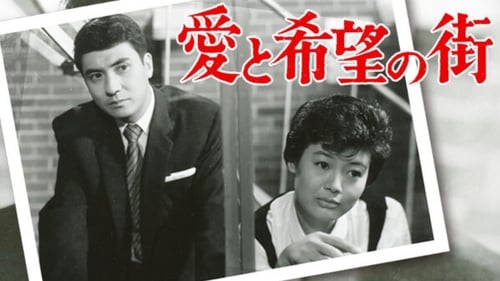
A young man runs a scam selling pigeons that always return to his home. He falls under the wing of Kyoko, an older student whose heart is touched after Masuo sells his pigeons to her. However, after his scam is revealed, can these feelings truly remain the same?
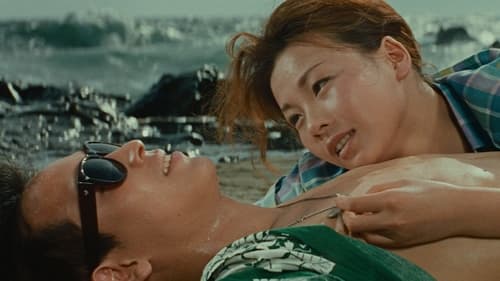
A budding gangster enthralls a freeloading young woman, soon taking advantage of her knack for hitch-hiking to rob middle-class, middle-aged men.
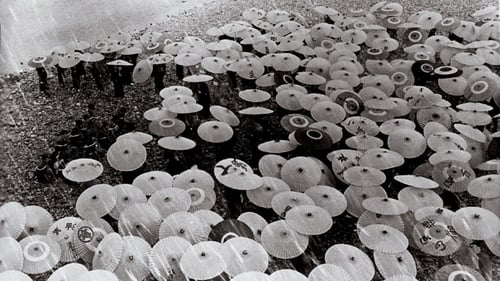
Assassination begins with the events of 1853 when "four black ships" anchored at Edo Bay, sparking civil unrest and the major political manoeuvring that saw the end of the Tokugawa Shogunate. At a time when assassination had become a disturbing political tool, Shinoda's film follows Hachiro Kiyokawa, an ambitious, masterless samurai whose allegiances drift dangerously between the Shogunate and the Emperor.
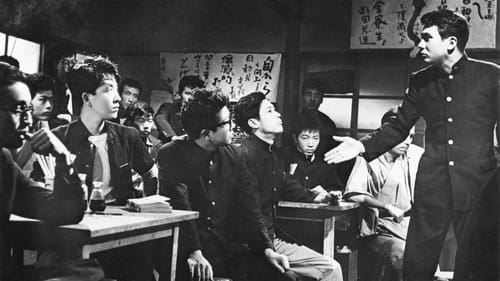
Nagisa Oshima’s most personal film is a reflection by the director on his own disillusionment with the revolutionary student movement of the 1950s and the failure of political radicalism. Taking its title (as a reference or homage) from Alain Resnais’ pivotal 1956 documentary Nuit et Brouillard, the film has a group of former student revolutionaries who meet again years later at the wedding of one of their classmates. Old feelings, rivalries and grudges gradually erupt to the surface as the one-time friends recall the various treacheries by which their cause was defeated. Cutting between times past and the present, and unfolding the action from each of his characters viewpoints, Oshima creates an abstract and yet engrossing study of passions past and principles eroded. —Yume Pictures

Muraki, a hardboiled Yakuza gangster, has just been released from prison after serving a sentence for murder. Revisiting his old gambling haunts, he meets Saeko, a striking young upper-class woman who is out seeking thrills, and whose presence adds spice to the staid masculine underworld rituals. Muraki becomes her mentor while simultaneously coping with the shifts of power that have affected the gangs while he was interred. When he notices a rogue, drug-addicted young punk hanging around the gambling dens, he realizes that Saeko's insatiable lust for intense pleasures may be leading her to self-destruction.

Nishi is an advertising executive for a caramel company that is planning to launch a new product, in fierce competition with two other companies.

Eye-popping visuals and black humor mark this wild New Wave masterpiece about a vengeful contractor who hires a series of young killers to target a woman muckraker. Trouble brews when an amateur marksman shows up his eclectic competition.

The backstage romances of an egotistical singer and his under-valued manager, a lovelorn bandman and a nude dancer.
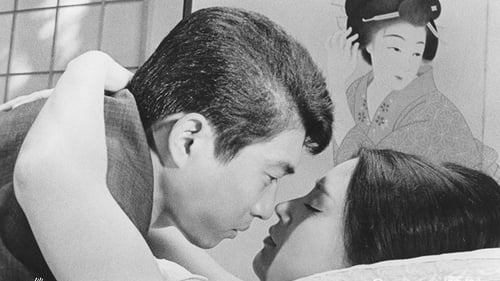
Struggling with his true emotions, dreams, memories of the past and the reality Shizuo is about to marry, but is torn between his wife-to-be and the love to his mother.
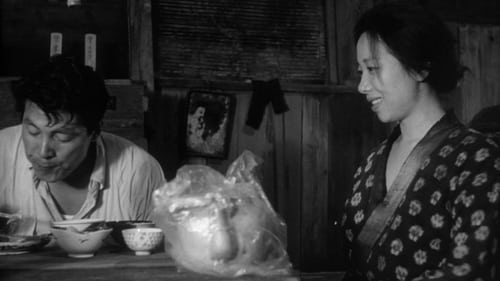
An entomologist suffers extreme psychological and sexual torture after being taken captive by the residents of a poor seaside village.

A businessman with a disfigured face obtains a lifelike mask from his doctor, but the mask starts altering his personality.
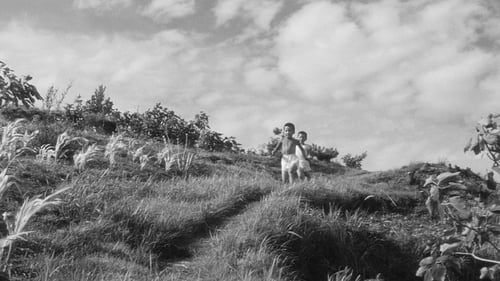
A family of four are the sole inhabitants of a small island, where they struggle each day to irrigate their crops.




